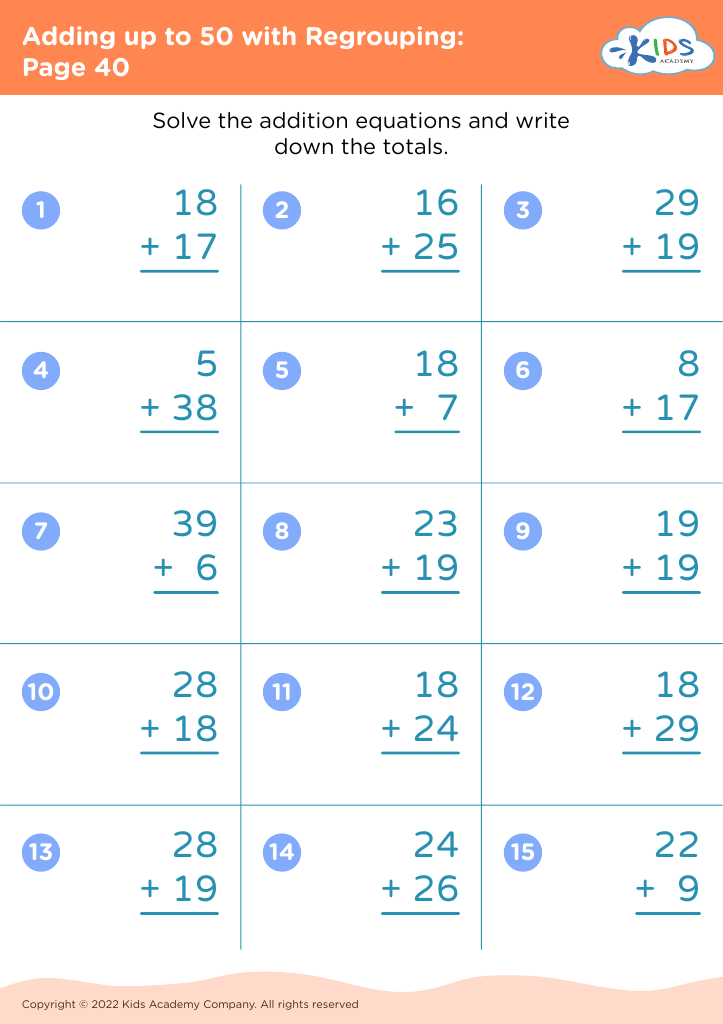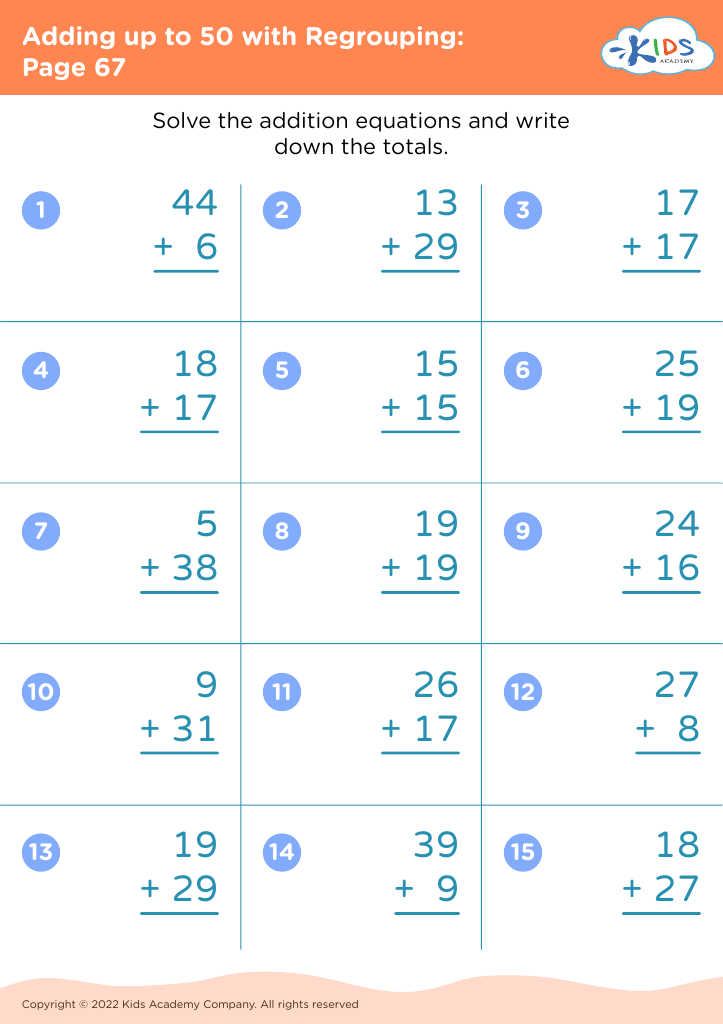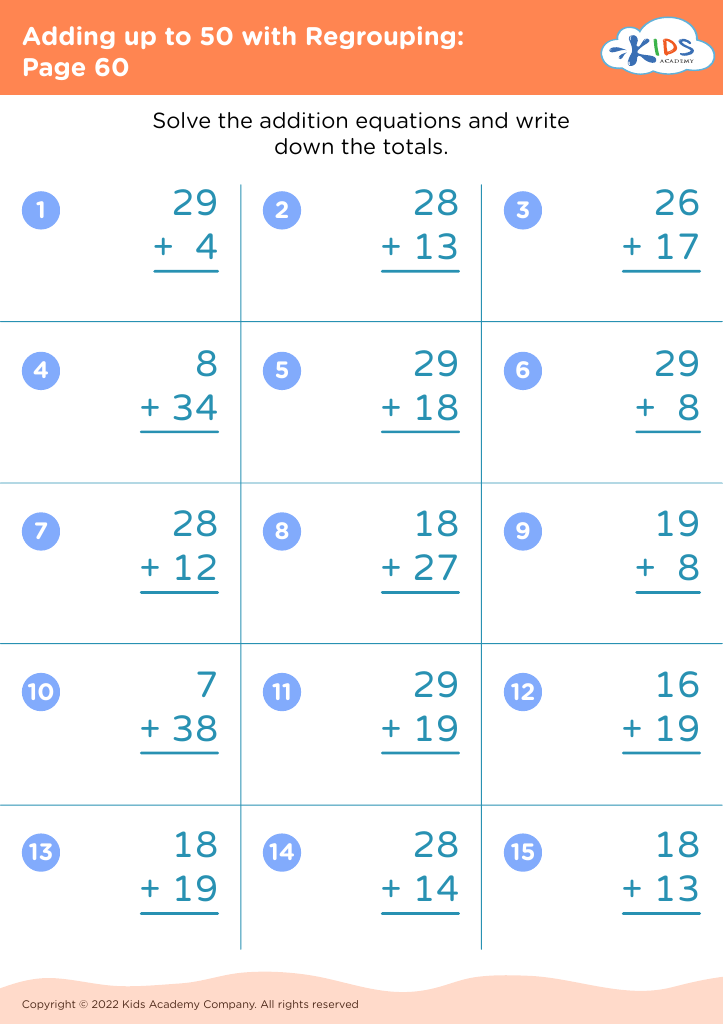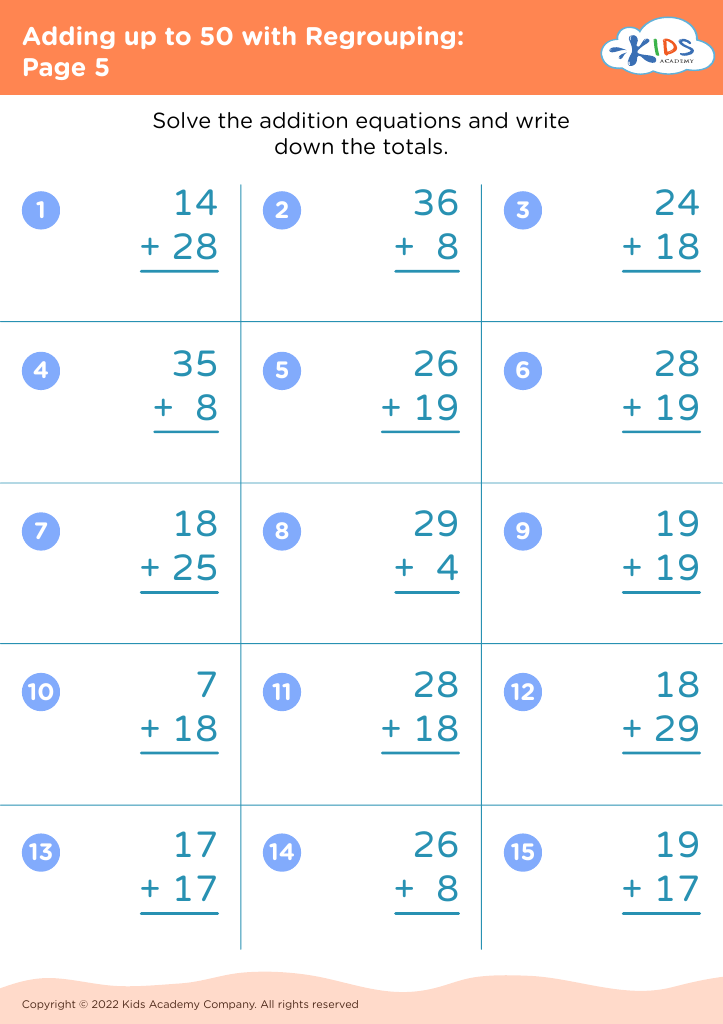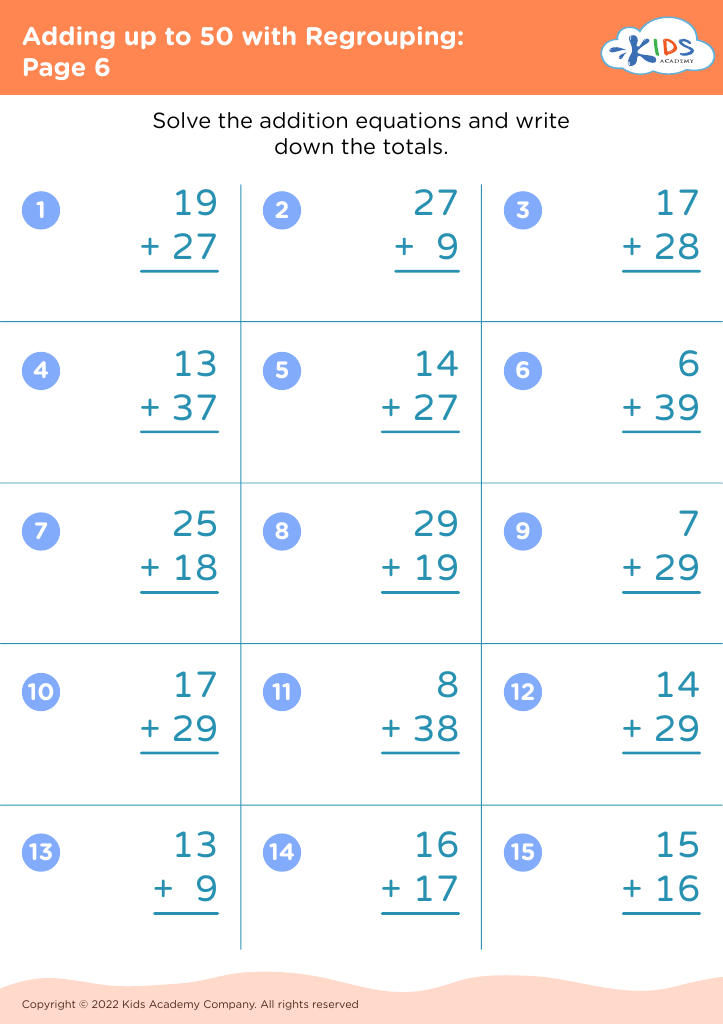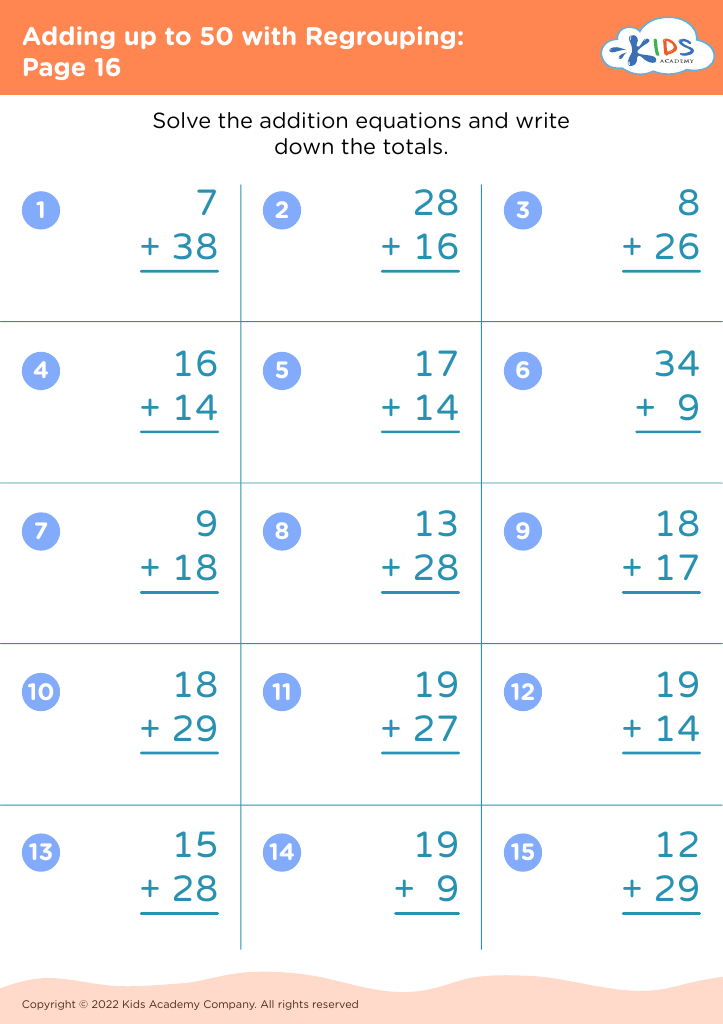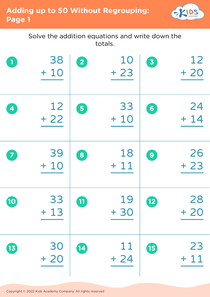Understanding fractions Adding up to 50 with Regrouping Worksheets for Ages 3-7
17 filtered results
-
From - To
Enhance your child's mathematical skills with our "Understanding Fractions Adding Up to 50 with Regrouping" worksheets, designed specifically for ages 3-7. These engaging and interactive resources help young learners grasp the concept of fractions while practicing addition and regrouping techniques. Our worksheets feature colorful illustrations and age-appropriate problems that provide a fun, hands-on approach to mastering these essential math skills. By incorporating game-like elements, children will remain motivated and excited about learning. Perfect for both at-home practice and classroom use, these worksheets will foster a solid foundation in mathematics, setting the stage for future success. Get started today!
Understanding fractions and the ability to add numbers, especially with regrouping, are crucial foundational skills for children aged 3-7. These skills not only form the basis for future mathematical learning but also enhance problem-solving abilities critical in everyday life.
At this age, cognitive development is rapid. By introducing concepts like fractions, children learn to recognize parts of a whole, which aids in understanding quantities and comparisons. This lays the groundwork for later mathematical concepts, making math more approachable as they grow.
Similarly, mastering addition with regrouping fosters numerical flexibility. As children encounter problems where carrying over is necessary, they learn about place value, which is vital for more advanced arithmetic operations.
For parents and teachers, supporting this learning in a fun and engaging manner helps cultivate a positive attitude toward math. Encouraging practice through play-based activities reinforces these concepts, making math feel less intimidating and more enjoyable.
In short, emphasizing understanding of fractions and adding through regrouping during these formative years not only equips children with essential skills but also boosts their confidence and creativity in problem-solving, creating a strong academic foundation for their future.
